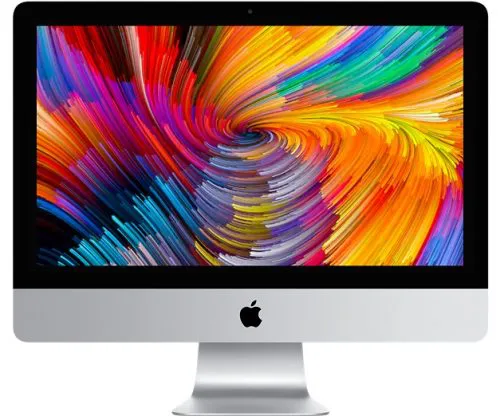In an age where digital privacy is increasingly under threat, Mac users might feel a false sense of security. After all, Apple has long touted its commitment to user privacy and security. However, the reality is that even Mac users need to take additional steps to protect their online presence. This is where a Virtual Private Network (VPN) comes into play.
The Apple Security Blanket
Many Mac users operate under the assumption that Apple’s built-in security features are sufficient to protect their online activities. While it’s true that macOS includes robust security measures, these primarily focus on protecting the device itself and the data stored on it. When it comes to your online activities, there are still vulnerabilities that Apple’s security measures can’t address.
The Illusion of Privacy
Every time you connect to the internet, your Mac is assigned an IP address. This address can be used to track your online activities, pinpoint your location, and even identify you. Your Internet Service Provider (ISP) can see every website you visit, every file you download, and every streaming service you use. In some countries, ISPs are required by law to log this information and potentially share it with government agencies or third parties.
Enter the VPN
A VPN creates an encrypted tunnel between your Mac and a remote server operated by the VPN service. All your internet traffic is routed through this tunnel, making it appear as if it’s originating from the VPN server rather than your actual location. This simple act of rerouting and encrypting your traffic provides several key benefits for Mac users:
- Enhanced Privacy: By masking your real IP address, a VPN makes it much harder for websites, advertisers, and other third parties to track your online activities.
- Improved Security: The encryption provided by a VPN protects your data from prying eyes, especially when using public Wi-Fi networks.
- Bypass Geo-restrictions: VPNs allow you to access content that might be blocked in your region by connecting to servers in different countries.
- Avoid ISP Throttling: Some ISPs slow down certain types of traffic (like streaming or torrenting). A VPN can help you avoid this by making your traffic unidentifiable to your ISP.
- Protection Against Price Discrimination: Some online retailers and services adjust their prices based on your location. A VPN can help you avoid this by allowing you to appear to be browsing from different locations.
The Limitations of macOS Privacy Features
While macOS does offer some privacy features, they’re not comprehensive enough to provide full protection:
- Safari’s Intelligent Tracking Prevention: While this feature helps block some trackers, it doesn’t hide your IP address or encrypt your traffic.
- iCloud Private Relay: This feature, available to iCloud+ subscribers, does route your traffic through two separate relays. However, it only works with Safari and doesn’t offer the full functionality of a VPN.
- Built-in Firewall: The macOS firewall is great for blocking incoming connections, but it doesn’t do anything to protect your outgoing traffic.
Real-World Scenarios
Let’s consider a few real-world scenarios where a VPN could be crucial for a Mac user:
- Working Remotely: If you’re using your MacBook in a coffee shop or hotel, a VPN can protect your sensitive work data from potential eavesdroppers on the public Wi-Fi network.
- Streaming Content: Want to watch a show that’s only available on US Netflix, but you’re traveling abroad? A VPN can help you access your usual streaming services from anywhere in the world.
- Online Banking: When accessing your financial information online, a VPN adds an extra layer of security to protect your sensitive data.
- Research: If you’re conducting sensitive research, a VPN can help keep your inquiries private and prevent them from being associated with your identity or location.
- Avoiding Censorship: In countries with internet restrictions, a VPN can help you access blocked websites and services.
The Growing Importance of VPNs
As our lives become increasingly digital, the importance of protecting our online privacy grows. Cybercrime is on the rise, with hackers becoming more sophisticated in their methods. Governments around the world are expanding their surveillance capabilities, and big tech companies are constantly finding new ways to collect and monetize our data.
In this context, a VPN is no longer a tool just for the tech-savvy or the paranoid. It’s becoming an essential part of maintaining our privacy and security online. For Mac users, who often handle sensitive personal or professional data on their devices, a VPN is particularly crucial.
Choosing the Right VPN
Not all VPNs are created equal, and it’s important to choose one that meets your specific needs as a Mac user. Look for VPNs that offer:
- Strong encryption protocols
- A strict no-logs policy
- Fast connection speeds
- A user-friendly Mac app
- A wide selection of server locations
- The ability to bypass geo-restrictions effectively
Remember, while free VPNs might seem tempting, they often come with limitations in terms of speed, data caps, and sometimes even privacy. A paid VPN service is generally a better choice for those serious about their online privacy and security.
Conclusion
While Macs are known for their security features, they’re not impervious to online threats. A VPN adds an essential layer of privacy and security that goes beyond what macOS can provide on its own. By encrypting your internet traffic and masking your IP address, a VPN helps protect your sensitive data, maintain your privacy, and give you more control over your online experience. In today’s digital landscape, where threats to our online privacy are constantly evolving, a VPN is no longer a luxury for Mac users – it’s a necessity.
What is the Best VPN for Mac in 2025?








